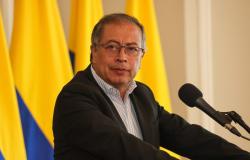The debate between those who believe that businessmen turned politicians can implement social policies in favor of the labor movement, and those who maintain the opposite, is often answered with facts from reality that are incontrovertible. The most complete example occurs from 2007 to date in the City of Buenos Aires, where Macrismo has a monopoly on management. Those who work in the different sectors of the Buenos Aires public administration, especially delegates from a wide range of unions, assure that the transfer of resources from the public to the private in the district would have occurred instantly if it were not for the resistance of the unions, which is why many union leaders are persecuted, suspended and even fined with the removal of their privileges.
In the last week, the Buenos Aires justice system suspended and removed the privileges of metrodelegate Claudio Dellecarbonara, and the head of Government Jorge Macri threatened to denounce subway workers who carry out forceful measures. Some events that have occurred in recent years show that the workers most harassed by the Buenos Aires administration are teachers, health professionals and metro delegates. The latter are harassed twice: by SBASE, the state company that manages the Buenos Aires State, and by EMOVA, which has the Subway concession.
Teaching
In 2012, Inadi presented an injunction to close the 0800 number inaugurated by the then Buenos Aires Minister of Education, Esteban Bullrich. A line created to receive complaints about alleged “political interference in schools.”
In 2017, the City said that at least 50 school management teams covered up for teachers who went on strike in March of that year. To arrive at this figure, he argued that he crossed data between the load of absences from the system declared by the driving teams and the data that they supposedly confirmed, through more than 350 auditors who were sent to the schools during the days of strike to harass the students. teachers. At that time, the City justified more than 50 thousand salary deductions to those who exercised forceful measures.
The persecutory events in CABA extended to families and students. In 2022, former Minister Soledad Acuña sent letters and documents to parents of students who took schools within the framework of several claims linked to the improvement of school infrastructure, meals and in opposition to the PRO’s free internships.
“Teaching is not only persecuted here, there was persecution and even dead teachers in Mexico and Chile. Many of us, teachers, live all day with the social crisis, government policies, we see all the time the unemployment that families and those who care for other kids have. We are dealing with family crises all day, we live them on a daily basis and teaching offers a role of containment and that makes us critically rethink government measures,” highlights Juan Manuel Di Vincenzo, delegate of the ADEMYS Association, which since 2022 has a cause imposed by Soledad Acuña to remove the privileges.
“The political persecution is because the teaching union is a highly organized union and in that sense it always fights and resists governments. And also because we are educators, we have the critical spirit in mind, we want to train independent, autonomous students, trained in a comprehensive way. Many times the measures adopted by governments generate a very large social impact and we as State workers are right there at the limit, we are the first contact with families,” he adds.
Last June, Justice ruled in favor of Jorge Adaro, current union secretary of the union and another of the teachers from whom the Macri administration tried to remove the privileges. Both Adaro and Di Vicenzo are persecuted in the same case and now justice has to rule on the latter’s case.
Metrodelegates
In 2018, the metrodelegates denounced that Metrovías does not respect the precautionary measure that ordered the company to refrain from applying sanctions and making salary deductions in the event of each measure of force. At that time, the union indicated that the concessionaire promoted the removal of immunity from its deputy secretary, Néstor Segovia, for participating in a measure of force on May 12 of that year, when police officers repressed the protest and detained him along with 15 other workers of the subway for obstructing service.
A few days ago Claudio Dellecarbonara was suspended for 15 days and punished by having his union privileges removed. Jorge Macri threatened to criminally denounce those who carry out forceful measures over this issue. “We are persecuted for denouncing that the subway is a time bomb and for protesting against that situation. I was sanctioned for opening turnstiles, which is a measure that does not affect the service, and the company initiated legal actions against the workers and their representatives. “, highlights Dellecarbonara to Time.
The sanction applied to the subway worker is obtained by presenting a case in bad faith: “Reporting an address that the company knew perfectly well was not my address, since I had already made the sworn declaration of change of address, and the The company itself had sent me countless telegrams to my current address. This prevented me from becoming aware of the cause,” adds Dellecarbonara and concludes: “Why do you do it? Because I am part of a group that denounces the subway situation, that denounces the negotiations that the Emova company has and because I am part of the group of people who presented the protection to stop the high rate.”
Nursing
In 2018 the sector received the harshest punishment. Law 6035, approved only with the votes of the ruling party in the Legislature, does not recognize them as health professionals. Since then they have received half the salary they should receive if they were in the professional career. Although the court appealed on several occasions in favor of the nurses’ claim, the GCBA refuses to comply with the ruling.
In the midst of the pandemic, health workers began to make visible the situations experienced in the City’s public hospitals. Low salaries, long working hours and lack of supplies. The workers of several Buenos Aires hospitals reported persecution for exposing these shortcomings. “The truth is that we are constantly persecuted by the GCBA. In the last 2 years we had eight delegates laid off in different hospitals. “Five at the Durán hospital, two at Casa Cuna and one at the Psychophysical Rehabilitation Institute,” he told Time Luis Ortiz, Durand delegate. “This persecution is based on the complaints we have been making about the dismantling of the city’s health system. This is not from now, it has been going on for 17 years,” he adds and concludes: “There is no investment, there is no money and they do not guarantee access to health for thousands of citizens, leaving hospitals obsolete and without resources. “Unfortunate, today it is deepened with the current head of government Jorge Macri.”





